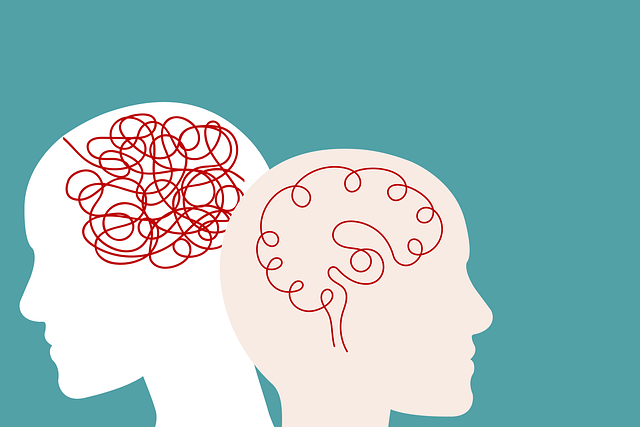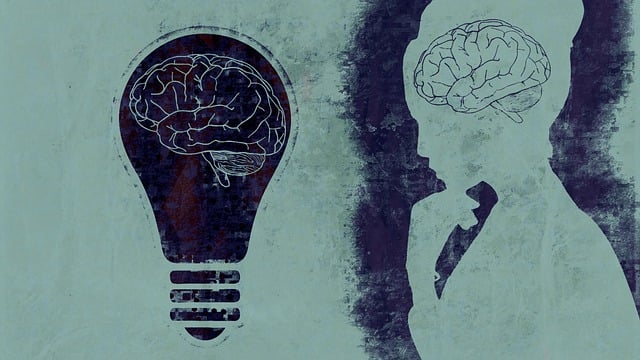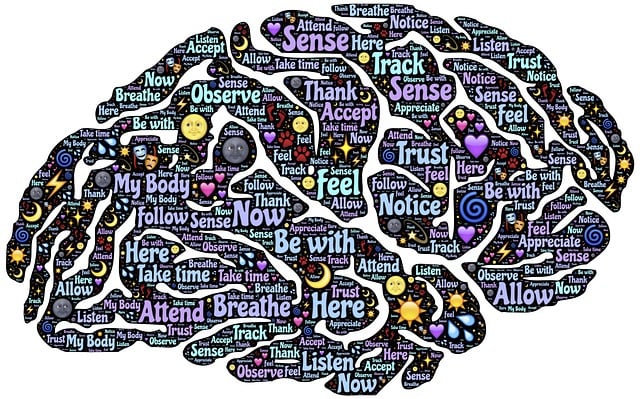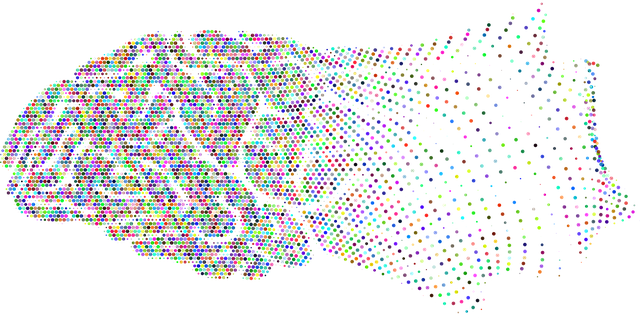Mindfulness meditation emerges as a powerful tool for Boulder Autism Spectrum Disorder (ASD) therapy, addressing unique challenges by cultivating non-judgmental awareness of present moments and thoughts. Tailored techniques improve social interactions, reduce anxiety, depression, and foster self-acceptance. Integrating mindfulness into therapy sessions enhances overall mental wellness coaching programs, promoting self-care and improved quality of life. Creating a dedicated meditation space with minimal distractions, positive thinking, and specific intentions optimizes relaxation, leading to better concentration, calmness, and mental clarity. Regular mindfulness practices significantly improve emotion regulation, challenge navigation skills, and foster present-moment awareness for individuals with ASD needs, normalizing these practices through community outreach and policy advocacy.
“Unwind your mind and embrace tranquility with mindfulness meditation, a powerful tool in Boulder Autism Spectrum Disorder (ASD) therapy. This practice guides individuals towards self-awareness and emotional regulation, offering a peaceful sanctuary from daily stressors.
In this comprehensive guide, we’ll explore the fundamentals of mindfulness meditation, providing practical tips for preparation, various techniques, and strategies to integrate mindful moments into your routine. Discover how these simple yet effective practices can enhance well-being and create lasting positive changes in Boulder ASD therapy.”
- Understanding Mindfulness Meditation for Boulder Autism Spectrum Disorder Therapy
- Preparing Your Mind and Space for a Successful Practice
- Techniques and Exercises for Effective Mindfulness Meditation
- Incorporating Mindful Moments into Daily Routines for Sustained Benefits
Understanding Mindfulness Meditation for Boulder Autism Spectrum Disorder Therapy

Mindfulness meditation, a practice that has gained popularity in recent years, offers a unique and effective approach to Boulder Autism Spectrum Disorder (ASD) therapy. By focusing on the present moment and cultivating non-judgmental awareness, individuals with ASD can learn to navigate their sensory experiences and emotional responses in a more regulated manner. This form of meditation is not about clearing the mind but rather observing thoughts and sensations as they arise without attachment or reaction.
For Boulder ASD therapy, mindfulness practices can be tailored to address specific challenges associated with the spectrum, such as social interactions and communication. Studies suggest that regular mindfulness meditation may help reduce symptoms of anxiety and depression, which are often comorbid with autism. Moreover, these techniques foster self-acceptance and empathy, contributing to mental illness stigma reduction efforts. The integration of mindfulness into therapy sessions can enhance overall mental wellness coaching programs, providing individuals on the spectrum with valuable tools to improve their quality of life and promote self-care.
Preparing Your Mind and Space for a Successful Practice

Creating a dedicated space for mindfulness meditation is a powerful step towards enhancing mental wellness. In the context of Boulder Autism Spectrum Disorder Therapy, individuals often find solace in establishing a tranquil environment tailored to their unique needs. This preparation begins with quieting the mind; setting aside time when external distractions are minimized allows for a clearer focus. Creating a peaceful sanctuary, whether it’s a cozy corner or an entire room, can significantly impact the practice’s effectiveness. Consider incorporating elements that foster relaxation, such as soft lighting, soothing scents, and comfortable seating.
In addition to preparing your physical space, cultivating a receptive mindset is equally important. Encouraging positive thinking and mood management techniques through regular meditation practices can be transformative. Many find that setting specific intentions before beginning their journey inward improves concentration and makes the experience more meaningful. With consistent effort, this routine can contribute to a profound sense of calm and improved mental clarity, making it a valuable tool in any individual’s pursuit of holistic mental wellness, as explored in our Mental Wellness Podcast Series Production.
Techniques and Exercises for Effective Mindfulness Meditation

Mindfulness meditation involves various techniques and exercises designed to help individuals cultivate present-moment awareness and promote emotional well-being. One effective practice is focused breathing, where practitioners pay close attention to their inhalation and exhalation, observing the natural rhythm of their breath. This simple yet powerful exercise helps calm the mind and body, reducing stress and anxiety.
For those dealing with conditions like Boulder Autism Spectrum Disorder Therapy, mindfulness meditation can be a valuable tool for self-care routine development. By incorporating regular practice into their daily lives, individuals can enhance their ability to regulate emotions and navigate challenges more effectively. Emotional well-being promotion techniques, such as body scans and mindful walking, encourage individuals to connect with their physical sensations and surroundings, fostering a deeper sense of grounding and presence.
Incorporating Mindful Moments into Daily Routines for Sustained Benefits

Incorporating mindful moments into daily routines can significantly enhance mental health for individuals with Boulder Autism Spectrum Disorder Therapy (ASD) needs. Simple practices such as taking a few deep breaths before meals or engaging in sensory checks during transitions can serve as anchors for focused attention throughout the day. These regular, brief mindfulness exercises cultivate present-moment awareness, helping to regulate emotions and reduce stress responses that are often more pronounced in those with ASD.
Over time, integrating these mindful moments into established routines fosters a sense of calm and control. This not only supports individuals in managing their symptoms but also encourages self-care practices essential for overall well-being. By promoting mental health policy analysis and advocacy within communities, including the implementation of community outreach program initiatives, we can create environments that further normalize and support these practices, ultimately enhancing the quality of life for those with ASD.
Mindfulness meditation, when integrated into Boulder Autism Spectrum Disorder (ASD) therapy, offers a powerful tool for managing sensory processing challenges and improving overall well-being. By creating a calm space, both mentally and physically, individuals with ASD can enhance their focus, reduce anxiety, and cultivate a deeper sense of self-awareness. Regular practice, combined with incorporating mindful moments into daily routines, ensures sustained benefits that can positively impact social interactions and overall quality of life.













